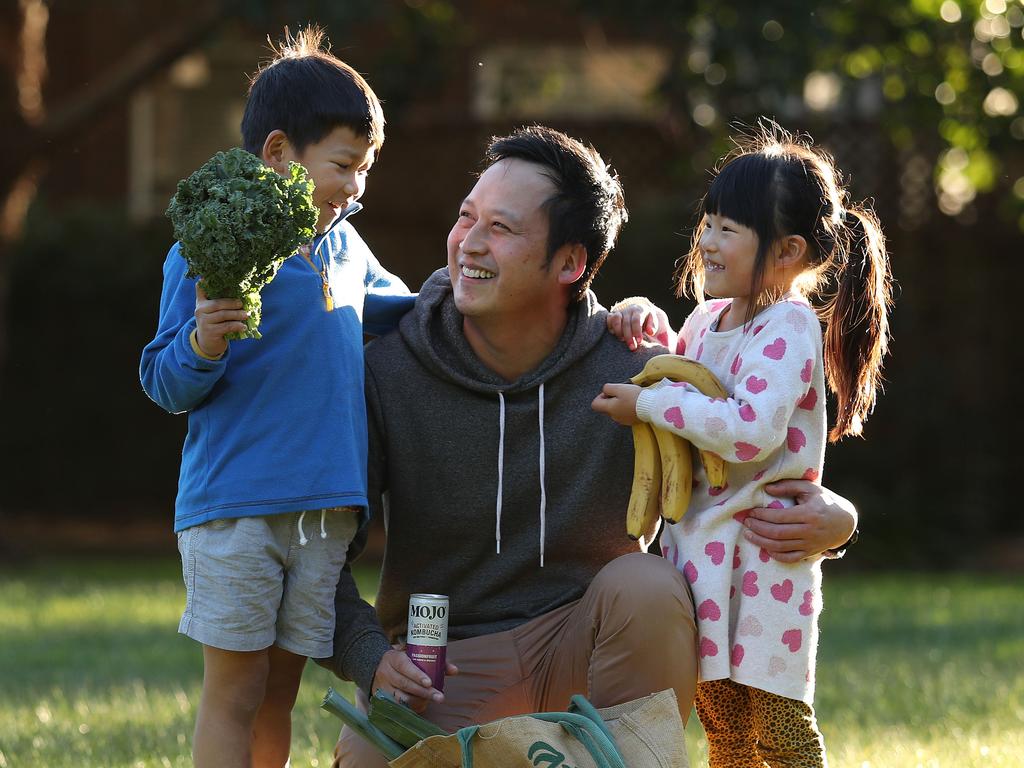Trusting your gut sounds a lot like following your heart.
But where hearts lead young lovers astray (hello, Romeo and Juliet), the gut may be the human body’s true highway to happiness.
According to leading nutrition scientist and dietitian Dr Joanna McMillan, the question of how much diet and gut health influence mood is a hot topic in lifestyle medicine and nutrition research.
“Just think about when you have a sore tummy, when you’re really bloated and gassy or you’ve had a tummy bug. Think about the impact that has on your mood,” Dr McMillan says.
Indeed, bowel cancer remains one of the leading cancers affecting Australians – and chronic illnesses like Irritable Bowel Syndrome (IBS) and other inflammatory bowel disease are not only uncomfortable but can be debilitating.
While some of these diseases have a genetic or environmental cause, Dr McMillan says many come down to diet and exercise.
“We see a very clear link between people who have IBS … and a very high incidence of anxiety and depression,” she says.
“Recent research (shows) that the gut – and the microbiome, which is part of (gut function) – is inevitably involved. We know that people who have mood disorders have differences in their microbiomes.”

Dr McMillan describes the link as “constant chatter between the gut and the brain”.
Diet dominates that conversation, which is good news in Australia, where affordable plant foods are freely available.
“You want it to be a wholefoods diet. I deliberately use the term plant rich, because you don’t have to cut out animal food altogether. Things like oily fish can be really good for the gut,” Dr McMillan says.
“Whole grains in their true form have a pretty exceptional effect on the gut, (and) legumes: lentils, beans, peas, chickpeas. They’re fantastic, prebiotic-rich foods, boosting the health of your microbiome.”
Choose fruits and vegetables rich in antioxidants called polyphenols, which give berries their blue, red and purple colour. Polyphenols are also in green leaf and cruciferous vegetables: broccoli, cabbage, brussels sprouts and cauliflower.
“Don’t forget nuts and seeds. It’s really about that diversity of different plant foods giving us a whole lot of different types of fibre. That’s what’s going to have that knock-on, good effect.”
Beyond choosing wholefoods, people can further improve their gut health and happiness by drinking more water and moving more each day.
“Get up regularly and do a chore … (or) potter around in the garden,” Dr McMillan says.

Activity and diet are common COVID casualties for many people, particularly those back in full lockdown.
Father of two Joseph Leung says the current environment has turned gut health into the cornerstone of rebuilding his family’s wellbeing.
“Our lockdown lifestyle tended to be … a lot of sitting still, driven by work and school from home, as well as sporting activity ceasing and gyms closing,” he says.
“Eating habits get out of kilter as well. You’re not necessarily sticking to standard meal times and healthy eating habits. You’re just kind of grabbing whatever you can as you go.
“Both of those changes had a bit of an impact on the family, both physically and emotionally.”
Mr Leung says eating with son Jethro, 7, and daughter Cassidy, 4, has become increasingly important.
The kids eat what the adults eat and they discuss what they’re eating and why it matters.
“That really helps them to understand why they should be eating those things. They really love broccoli. We eat that almost every dinner, and things like sweet potato, which we know are high in prebiotics as well.”
His realisation that COVID may herald permanent changes to his family’s way of life means Mr Leung is promoting happiness by reintroducing positive habits like eating better, drinking more water, getting sufficient sleep and doing more at every opportunity.
Adding stealth shots of kombucha to the family’s breakfast smoothies overcomes what can be an off-putting taste for young kids.
“We went through the first half of lockdown pretty oblivious to the negative habits that were developing,” he says.
“There was just a switch probably six weeks ago, where we said, ‘We can’t keep doing this, so let’s make some more conscious choices’.”
GUT GOALS
Gut guru Dr Joanna McMillan shares her top five tips for being a great guardian of your family’s gut health.
1. FUEL YOUR HEALTHY GUT BUGS WITH FIBRE
“You need to have fibre – that’s what worries me when people do really low carb diets. Carbohydrate is not a food group, it’s a nutrient present in food, so don’t judge a food by carbohydrate content, judge it by whether it’s a wholefood or not.”
2. GO FOR PLANTS WITH DIVERSITY
“Try adding up all the different plant-based foods, including whole grains, legumes, nuts, seeds, vegetables and fruit. See if you can get to 30 across the week.”
3. DRINK PLENTY OF WATER
“A lot of the fibres absorb water in your gut. … drinking plenty of water [is] going to help keep things moving through your gut.”
4. EXERCISE DAILY
And limit how much time you spend sitting down.
5. INCLUDE FERMENTED FOOD AND DRINK IN YOUR DIET
“Things like kombucha, sauerkraut, kimchi, yoghurt, kefir and even sourdough bread.”


